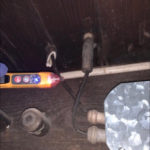
Top 10 Things Every Homebuyer Needs to Know About Home Inspections
Buying a home is one of the biggest investments you’ll ever make. A thorough home inspection is a crucial step in the process to ensure you’re making an informed decision. Here’s a guide to the top 10 things every homebuyer should know about home inspections:
1. What Is a Home Inspection?
A home inspection is a professional evaluation of a property’s condition. Inspectors assess the structure, systems, and overall safety of the home, providing a detailed report of their findings.
2. Why Do You Need a Home Inspection?
A home inspection helps you identify potential issues that could cost you money down the road. It provides leverage for negotiations and ensures you’re aware of what you’re buying.
3. What Does a Home Inspection Cover?
Home inspections typically cover major systems like plumbing, electrical, HVAC, roofing, foundation, and more. However, specialty inspections for radon, mold, or pests may require additional services.
4. Who Should Hire the Home Inspector?
The buyer usually hires the home inspector. Choose an experienced, licensed inspector with good reviews and certifications from reputable organizations like ASHI or InterNACHI.
5. Attend the Inspection
Whenever possible, attend the home inspection. It’s a great opportunity to ask questions and see potential issues firsthand.
6. Inspections Aren’t Pass/Fail
Home inspections don’t “pass” or “fail” a house. Instead, they provide an objective report detailing the condition of the property. Use this information to decide your next steps.
7. Prepare for Additional Costs
While the average home inspection costs $300–$500, specialized inspections for radon, lead, or pests may add to the total expense. It’s worth the investment to uncover potential problems.
8. Pay Attention to the Big-Ticket Items
Focus on significant issues like the roof, foundation, HVAC systems, and electrical wiring. Cosmetic flaws can often be addressed later, but major issues can impact safety and budget.
9. Use the Inspection Report Strategically
The inspection report can be a powerful tool for negotiating repairs or price reductions with the seller. Work with your real estate agent to develop a plan based on the findings.
10. Plan for Regular Maintenance
Even if the inspection reveals no major issues, plan for ongoing maintenance. A well-maintained home lasts longer and costs less in repairs over time.
Conclusion
A home inspection is a critical step in the homebuying process. By understanding what to expect and how to use the inspection to your advantage, you can move forward with confidence.
For more tips or to schedule a home inspection, contact Peace of Mind Home Inspection Services today. Let us help you protect your investment!





